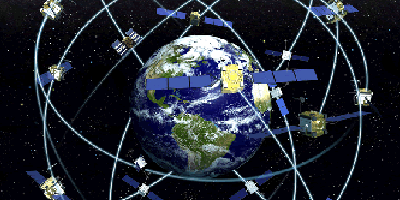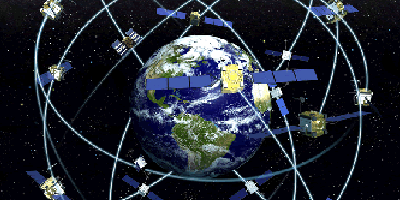Pinpointing Planck’s Constant with GPS
GPS is helping drivers find their way and parents track their kids and pets. But now a pair of researchers—reporting in Physical Review Letters—has used the same technology to put new limits on variations in Planck’s constant.
Certain theories allow physical constants, such as the speed of light or the gravitational constant, to vary, and some astronomical observations have been interpreted as suggesting the electromagnetic coupling was different in the past. Testing these hypotheses often requires sophisticated instruments. But James Kentosh and Makan Mohageg of California State University, Northridge, have found a way to use the ubiquitous global positioning system, or GPS, to evaluate the constancy of Planck’s constant, .
GPS relies on atomic clocks, which are sensitive to Planck’s constant through their ticking frequency, , where is the energy of a specific atomic transition. For a clock orbiting in one of the GPS satellites, this frequency can shift with respect to ground-based clocks because of well-known relativistic effects. The GPS system keeps track of this frequency drift and broadcasts a clock correction with its signal.
Kentosh and Mohageg looked through a year’s worth of GPS data and found that the corrections depended in an unexpected way on a satellite’s distance above the Earth. This small discrepancy could be due to atmospheric effects or random errors, but it could also arise from a position-dependent Planck’s constant. Assuming the latter, the authors derive an upper limit on Planck variation. – Michael Schirber





